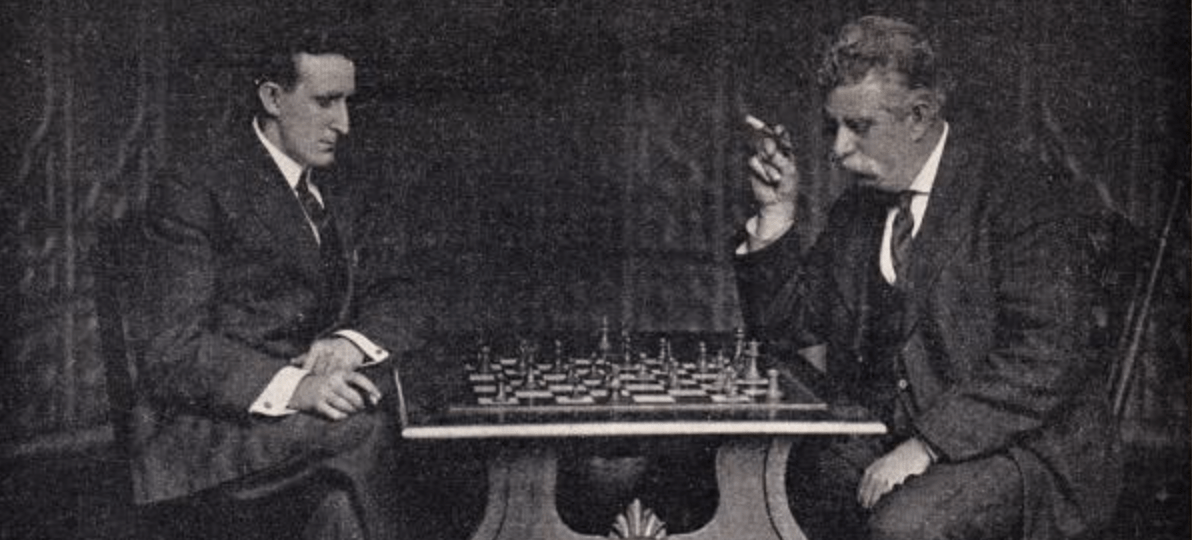
A Century of Chess: Marshall-Showalter 1909
There’s an odd background to this match. Marshall was clearly the strongest U.S. player after the death of Harry Pillsbury, but there had never been an opportunity to reify his status as U.S. champion. In early 1909, the New York State Chess Association sanctioned a match between Marshall and Capablanca. The match was technically supposed to be for the U.S. championship, but the details of that weren’t worked out in advance - it was expected that Marshall would win and would, without fuss, cement his position as America’s top player. Instead, Capablanca, a little-known Columbia dropout who had never played in a major tournament, turned out to be the greatest chess genius the world had ever seen - and started to make that case by thrashing Marshall +8-1.
That result complicated the question of the U.S. championship, since Capablanca had been a U.S. resident for five years but was not a citizen. Capablanca issued a strongly-worded letter insisting that the match victory made him the “champion of America,” a self-proclaimed hemispheric title that superseded national boundaries. Marshall argued that he was still U.S. champion. The vexing problem was submitted to the lawyer and chess master Walter Penn Shipley for arbitration, and Shipley solomonically declared that neither Marshall nor Capablanca was the U.S. champion - after Pillsbury died in 1904, the title reverted back to the previous champion, Jackson Whipps Showalter.

So Showalter, who hadn’t played a serious game in five years, was dredged up out of retirement to play a match with Marshall. The match, as befitted Showalter, had a leisurely Southern atmosphere. The games were played in a hotel in Kentucky. The match negotiations were a model of civility. "In regard to the number of games per week and the number of off days he is willing to leave this entirely to Mr. Marshall," wrote Showalter's match amanuensis. The easily-overlooked Showalter was a strong player (also a great sport - one of six people in the world from whom, said the cantankerous Steinitz, he would accept a cigar; and one of about ten thousand who is credited with having thrown the first curveball!) but he was not really in Marshall’s class, certainly not in 1909, and Marshall won without difficulty, with seven wins against two losses and only three draws. Both were fighting players, and the games centered on Albin Gambits and simultaneous attacks. It turned out that Capablanca had bigger fish to fry than the U.S. championship and never pressed his claim. Marshall kept the title, with very little challenge, until 1936.

Sources:
-Andy Soltis, Frank Marshall, United States Chess Champion
-Frank Marshall, Marshall's Best Games of Chess
-chessgames.com: Marshall-Showalter 1909
-Allan Showalter, Jackson Whipps Showalter
-Edward Winter, Marshall v. Showalter
